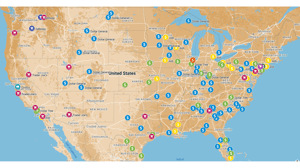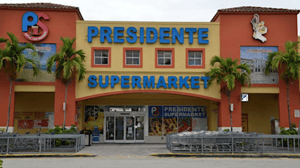FTC Orders Walmart, Kroger to Shed Light on Supply Chain Disruptions
Agency asks retailers to turn over information to help determine causes of empty shelves, price increases. Agency asks Amazon and others to turn over information to help determine causes of empty shelves, price increases.

WASHINGTON — The Federal Trade Commission (FTC) is ordering nine large retailers, wholesalers and consumer good suppliers to provide detailed information that will help the agency shed light on the causes behind ongoing supply chain disruptions and how these disruptions are causing hardships for consumers and harming competition in the U.S. economy.
The FTC has sent the orders to Walmart, Amazon, Kroger, C&S Wholesale Grocers, Associated Wholesale Grocers, McLane Co., Procter & Gamble, Tyson Foods and Kraft Heinz. The companies will have 45 days from the date they received the order to respond.
“Supply chain disruptions are upending the provision and delivery of a wide array of goods, ranging from computer chips and medicines to meat and lumber. I am hopeful the FTC’s new … study will shed light on market conditions and business practices that may have worsened these disruptions or led to asymmetric effects,” said Chair Lina Khan. “The FTC has a long history of pursuing market studies to deepen our understanding of economic conditions and business conduct, and we should continue to make nimble and timely use of these information-gathering tools and authorities.”
The study will examine whether supply chain disruptions are leading to specific bottlenecks, shortages, anticompetitive practices or contributing to rising consumer prices.
“McLane Co. is aware of the news release reflecting the FTC’s inquiry into supply chain disruptions,” James Barnes, director of communications and public relations for the Temple, Texas-based convenience-store distributor, told CSP Daily News. “Although McLane has not yet received an order requesting information and documents, we anticipate cooperating upon receipt.”
The orders require the companies to detail the primary factors disrupting their ability to obtain, transport and distribute their products; the effect these disruptions are having in terms of delayed and canceled orders, increased costs and prices; the products, suppliers and inputs most affected; and the steps the companies are taking to alleviate disruptions and how they allocate products among their stores when they are in short supply.
The FTC also is requiring the companies to provide internal documents regarding the supply chain disruptions, including strategies related to supply chains; pricing; marketing and promotions; costs, profit margins and sales volumes; selection of suppliers and brands; and market shares.
In addition, the agency is soliciting voluntary comments from retailers, consumer goods suppliers, wholesalers and consumers regarding their views on how supply chain issues are affecting competition in consumer goods markets. These comments provide an opportunity for market participants to raise additional issues and examples of how supply chain disruptions are affecting competition, the FTC said.
Read more about:
WalmartAbout the Author
You May Also Like






